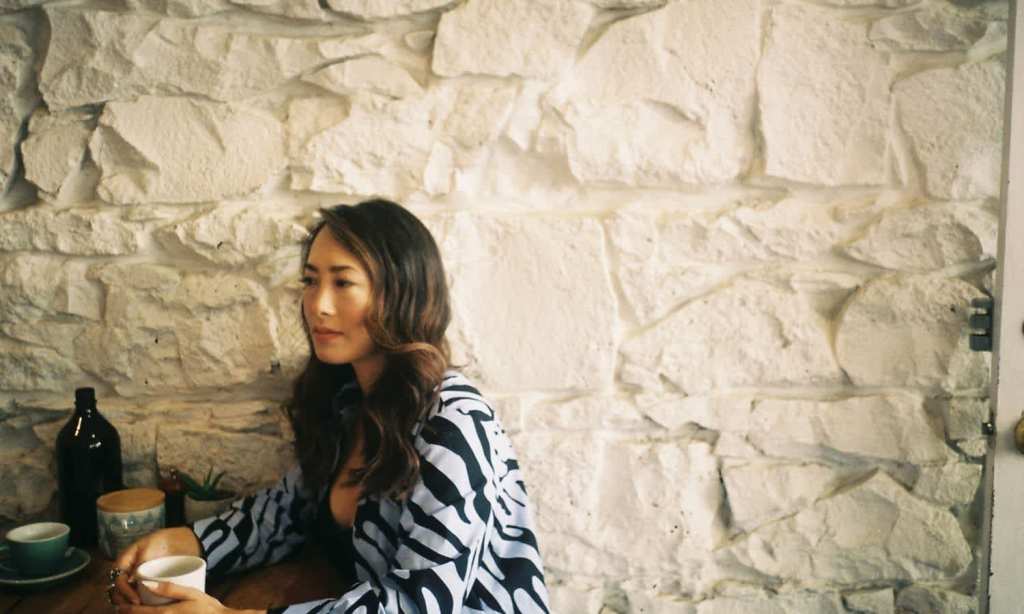MasterChef Australia is back for another stellar season, with judges Melissa Leong, Jock Zonfrillo and Andy Allen returning for another year.
The show is known for its heartwarming moments and the kindness the contestants and judges show each other, no matter how heated things get in the kitchen. But as we watch Zonfrillo, Allen and Leong interact with the participants, we sometimes forget that they’ve lived a life of struggle just like everyone else.
While she’s discovered love once again, 2020 was undeniably a tough year for Leong who separated from her husband of four years, Joe Jones, taking to Instagram in December that year to announce the news.
“It has brought us such happiness to walk together, but the time has come for Joe and I to part ways and walk on, apart,” she captioned a photo of the couple on their wedding day.
She continued, “We ask for your kindness and consideration for our privacy, we will not be making any further comment as our private lives have, and will always remain exactly that. We wish you peace at the end of such a challenging year for all.”
Leong, who is a fan favourite on the cooking competition, has had her fair share of challenges when it comes to mental health. Given her consistently warm and bubbly persona (especially heartwarming to see on MasterChef Junior) fans were surprised to learn that the food writer suffers from clinical depression and anxiety.
In fact, the breakout star — dubbed by viewers as “the best thing to happen to prime time television in 2020 ” — has established a code word that she can use with the show’s producers when she needs to take a minute to herself.
Back in May 2020, Leong explained, “There are some times when I just need to go into a quiet space and shut the door and have half an hour to myself. If I need a day like that where I just need that little bubble of time, it could be 10 minutes, I will tell them and they will find the next available opportunity for me to just have a minute.”
She continued, “It doesn’t take long, it could just be five minutes, just to kind of be quiet and then you gather yourself and keep going.”
For the cookbook editor, depression and anxiety have been part of her life for as long as she can remember, prompting her to seek help from a therapist in her 20s after experiencing a breakdown.
The popular television personality has said in the past that she uses exercise and meditation to help cope with her depression, musing, “The only person who can pick you up and put you back together and help you navigate all of the struggles in life is you.”
Leong has explained that her anxiety and depression was made worse by feeling unable to say “no” as she wanted to please too many people and that she needed to learn to slow down.
“Mental health is not a novelty; it’s part of who we are and we need to treat it as if it were a broken arm or any other kind of medical consideration,” she said.
While Leong found plenty of support and praise for her courageous decision to reveal her personal struggles, one fellow public figure also pointed out how taboo the topic of mental illness can be in some cultures.
Neighbours actress Sharon Johal, who interviewed Leong on her podcast We Are the Real Ones, said that it is critical for more women of colour to speak openly about mental health and break down the stigma.
Said Johal, who is Indian-Australian, “I certainly grew up with elders believing that mental health was just something ‘in your head’ so we need to collectively work together to support each other and change this.”
According to BeyondBlue, an estimated 45% of Australians will experience a mental health condition in their lifetime and in any one year, around one million Australian adults have depression, and over two million have anxiety. These figures could potentially be even greater in the wake of the coronavirus pandemic which has resulted in increased financial hardship due to a global recession and increased isolation as a result of widespread lockdowns.
Says Leong. “It’s important to de-stigmatise the conversation so people feel less alone.”
If you or anyone you know is struggling and needs support, call Kids Helpline on 1800 55 1800 or Lifeline on 13 11 14, both of which provide trained counsellors you can talk with 24/7. You can also speak with someone confidentially at Headspace by calling 1800 650 890 or chat online here.







